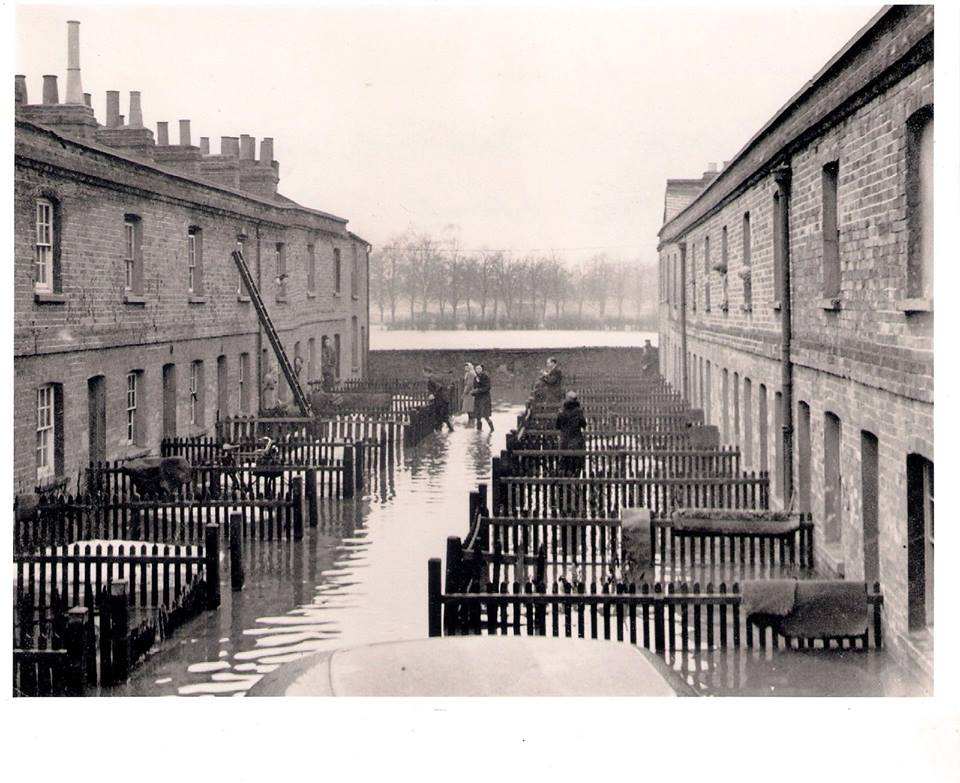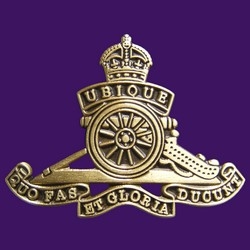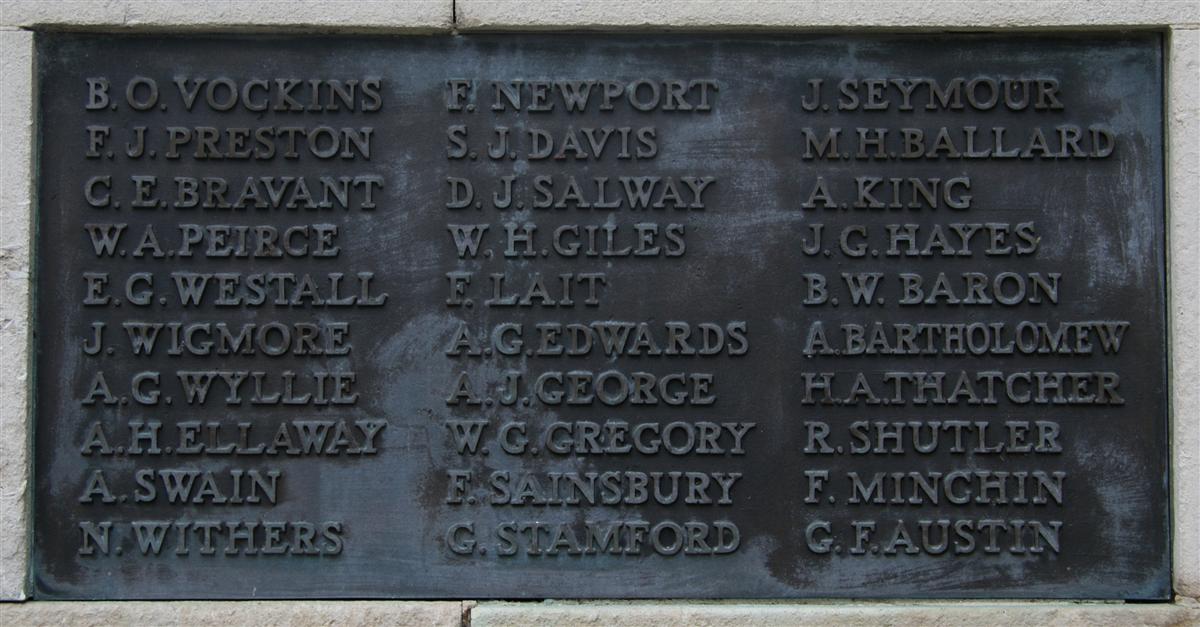Frederick Newport
Farrier Staff Sergeant 2706 Frederick Newport, 25th Battery, 35th Brigade, Royal Field Artillery
Frederick was born in Hamstead Marshall near Newbury in 1882 the son of Thomas Newport and his wife Eliza Ann née Smith. He was one of thirteen children born to his parents between their marriage in 1866 and his youngest brother’s birth in 1885.
Tragically all but four of these children were dead by the time Thomas and Eliza Ann filled in their census form in 1911. Most died very young and only eight can be identified from census returns: Henry (born 1869), Charles (1871), Caroline (1874), Sarah Ann (1877), Fanny (1880), Frederick (1882), George (1884) and Thomas (1885). There were many other Newport births registered in the Newbury are in this period, and many infant deaths – any five of which could be Thomas and Eliza Ann’s missing children. Fanny died in 1882 aged 1; George died in 1895 aged 11; Caroline lived to adulthood and married Edwin Pounds in 1892 – she died in 1903, quite possibly the result of childbirth, the most common cause of death in women of her age; Sarah Ann also lived long enough to marry (to James Rosier) in 1894; she died in Chelsea aged 29 in 1906.

Waterloo Place during a 1940s flood, it also flooded in 1914. |
Frederick joined the army in time to take part in the Boer War, for which he was awarded the Queen’s South Africa Medal. He served in South Africa with the 18th Battery (III Brigade), Royal Field Artillery. He was then transferred to the 25th Battery (XLVI Brigade) stationed in India.
On 5 August 1907 Frederick married 18 year old Margaret Louisa Scott in Kamptee, near Nagpur in central India where the Battery was stationed at the time. Ten months later, on 2 June 1908, the couple’s first child, Gladys Margaret, was born, also in Kamptee (not far, in Indian terms, from Jubbulpore). The enumeration of a different daughter ‘Louisa’ aged 2 years 3 months in 1911 confuses matters, but is clearly in error (Margaret would have to have been around 2 months pregnant with Louisa when Gladys was born 2 years 10 months before the census was taken).

The regimental badge of the Royal Artillery. |
In late 1913 the 25th Battery left India bound for England where they landed in January 1914. Frederick took a house in Newbury (19 Waterloo Place) for his family, and, perhaps himself. It is possible that he left the army when the Battery returned to England on completion of 12 years service and was recalled or re-enlisted when war broke out.
The battery was attached to 35th Brigade stationed at Woolwich. The Brigade was newly formed in 1914 and, when war broke out in August was not yet a part of one of the regular divisions maintained in the UK as a rapid response force. Thus the Brigade was not a part of the original British Expeditionary Force (BEF) that crossed to France in mid August and took part in the fighting retreat to the Marne and the subsequent battle that halted the German advance into France.
Meanwhile troops from all over the Empire had been recalled to the UK to supplement the BEF; the first division made up of these troops was the 7th Division and the 35th Brigade RFA became a part of this new division and crossed to France with it in early October 1914.
Frederick landed in Belgium on 6 October 1914; eight months later his fourth child, George Alan, was born on 2 June 1915.
The history of Frederick’s war is that of the 7th Division, which played a part in most of the battles whose names resonate down the years. Landing at Zeebrugge the divisions original task was to aid the Belgians in the defence of Antwerp, but events overtook them and Antwerp fell before the division got there. Then came the divisions finest hour – chance had positioned them between the Belgian coast and the town of Ypres (Ieper) just as a German army attempted to pass through the area in an outflanking manoeuvre. This single division fought the Germans to a standstill and earnt the name of the ‘Immortal Seventh’. This was the opening of the 1st Battle of Ypres after which the division fought at Neuve Chappelle, Festubert, Aubers Ridge, Givenchy, Loos, the Somme and 3rd Ypres (Passchendaele) before being dispatched to Italy to bolster the Italian Army which was suffering a heavy beating at Caporetto, north and east of Venice. By the time the Division reached Italy in January 1918 the Austrian assault of the Italians had run out of steam and life was in general safer than in France and Flanders. It was at this time that Frederick was awarded a Belgian Croix de Guerre:
Newbury Weekly News, 2 May 1918 – Local War Notes
Farrier Staff-Sergt F Newport, of RFA, of West-street, Newbury, has received the Belgian honour, the Croix-de-Guerre, for bravery in France. Sergt Newport was in the service in India when war broke out and was drafted to France. He is now in Italy, where he was posted at the beginning of the year.
As a Farrier Staff Sergeant Frederick would have been the senior NCO in the battery smithy, responsible principally for ensuring the dozens of horses used by the battery were well shod. As such he would rarely be in the front line and, whilst his war would not have been risk-free he would not have had to face the regular dangers of the infantry or the gun crews whose horses he was looking after.
However, there was one danger to which he was as vulnerable as the combat troops – the so called Spanish Flu. In 1918/19 this virulent strain of influenza swept across the world. In Europe so many were under-nourished and weakened by the stresses of war, but the flu did not only kill the weak and wounded – it seemed to be even more deadly to fit and healthy men and women. It is estimated that between 50 and 100 million died worldwide – many more than died as a result of the war.
Sadly Frederick was one of the virus’ victims dying on 29 October 1918 aged 36 – a few days before Austria signed the Armistice of Villa Giusti, ending hostilities on the Italian front, and less than two weeks before the armistice with Germany ended the fighting on the Western Front.
Newbury Weekly News, 14 November 1918 – Local War Notes
Mrs Newport, 19 Waterloo Place, West-street had official news of the death of her husband from influenza in Italy, on the 29th October. Farrier Staff Sergt Newport came over from India in 1914. He has seen active service in France, Belgium and Italy. In France he was awarded the Belgian honour, the Croix de Guerre. In two years he would have completed 21 years service. He leaves a widow and four children.
 Frederick's name on Newbury War Memorial. (top centre) |
Frederick was buried in grave I.D.12 at Staglieno Cemetery, Genoa.
Locally he is remembered on tablet 4 of the Newbury Town War Memorial as well as the memorial board and roll of honour in St Nicolas’ Church, Newbury.
Frederick’s son, Frederick Thomas Newport, was a hero of World War II winning a Distinguished Service Medal while serving with the Royal Navy in 1941. He survived the war dying in 1956.

